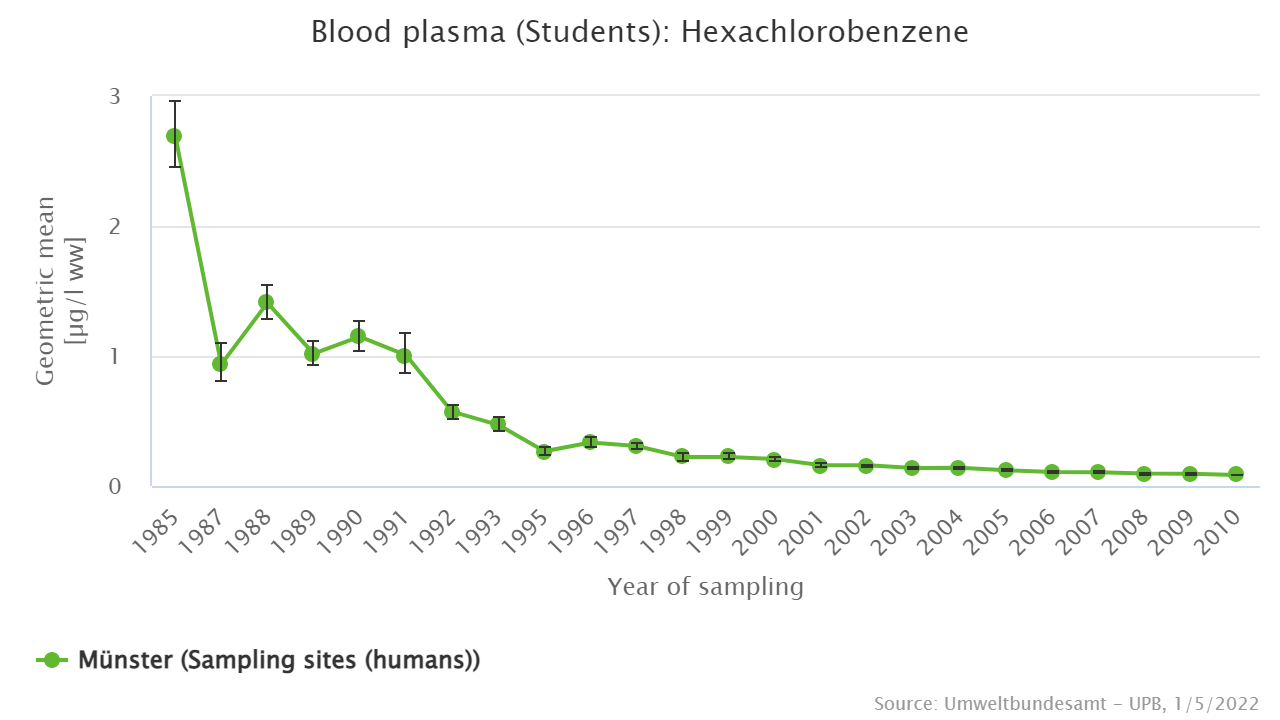Hexachlorobenzene in blood plasma of students from Münster
Significant decrease in hexachlorobenzene burdens since the 1980s
Hexachlorobenzene (HCB) is very persistent. It is highly bioaccumulative and enriches in the food web.
Since the early 1980s, hexachlorobenzene pesticides are banned in Germany. The effectiveness of the ban is reflected in the blood plasma concentrations of students from Münster: since the mid 1980s contamination has decreased significantly.
In 2010 only traces of HCB could be detected in samples of the Environmental Specimen Bank. Thus the routinely analysis of HCB in blood plasma samples was suspended.

Fig. 1: Hexachlorobenzene in blood plasma of students from Münster
Updated at: 2022-01-11
Recommended profiles
Specimen
-
Ideal matrix for most chemicals because it is in contact with the whole organism and in equilibrium with the organs and tissues in that chemicals are being accumulated
Analytes
-
Fungicide which was mainly used in seed treatment and as wood and timber preservative
Sampling area
-
4 university cities as sampling areas.